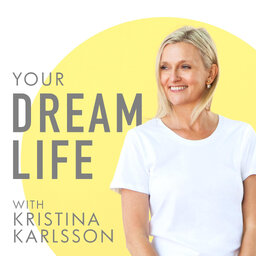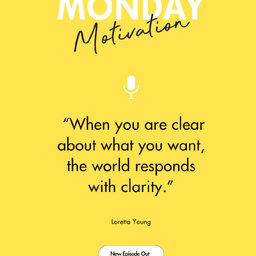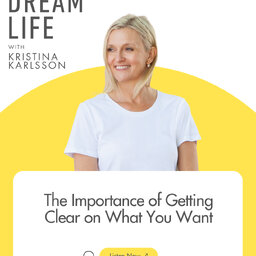#306 - THE BIG LEAP with Gay Hendricks
Today, I’m thrilled to share an inspiring episode of Your Dream Life podcast with a special guest: Gay Hendricks, the brilliant author of The Big Leap, a book that has transformed lives across the globe.
Gay dives deep into profound topics such as overcoming the upper limit problem, which often holds us back right after we achieve success, and stepping into our ‘zone of genius’—the place where our true power and joy meet.
You’ll hear about:
- What the ‘upper limit problem’ really is and how it shows up in everyday life.
- Practical steps to break free from self-sabotage and lean into sustained success.
- The secret to identifying your unique genius zone.
- How to view time not as an enemy, but as a friend that can expand for you when you align with your true self.
Whether you're looking to break free from your comfort zone or aiming for new heights in your personal and professional life, Gay’s wisdom will light your path.
Don’t miss out—this episode is packed with insights to fuel your journey.
As always, I’d LOVE to hear what resonates with you from this episode and what you plan to implement after listening in. So please share and let’s keep the conversation going in the Dream Life Podcast Facebook Group here.
Have a wonderful weekend… and remember, it all starts with a dream 💛
Enjoy!
Kristina 💛
Dream Life & kikki.K Founder
SHOW NOTES:
- The Big Leap by Gay Hendricks
- The Wealthy Gardener by John Soforic: Kristina mentions this book as an inspirational read.
- Buy your Dream Life Christmas Planner here: A step-by-step planner to help organize a calm, joy-filled Christmas season.
- Join my virtual book club GROW for December where we meet weekly on Zoom to discuss and squeeze the learnings from Gay's brilliant book,The Big Leap: Conquer Your Hidden Fear and Take Life to the Next Level.
- Join my Platinum Coaching Program - where in December the focus is What to Stop, Start & Continue in 2025. It'll be a clarity-focused month - helping you shape your 2025 vision with actionable steps, featuring insights from the inspiring Australian of the Year, Taryn Brumfitt, as your Super Star Speaker. Learn more here.
- Dream Life Community Facebook Group: Connect with like-minded dreamers.
RESOURCES:
- Sign up to our email list here to hear about upcoming workshops.
- Take your first step to getting clarity on what you want from life with this free bonus dreaming exercise here 101 Dreams Audio Guide
- Buy Kristina's book, Your Dream Life Starts Here
See omnystudio.com/listener for privacy information.
In 1 playlist(s)
Your Dream Life with Kristina Karlsson
What would you do if you knew anything was possible and you simply could not fail? Explore the possi…Social links
Follow podcast
Recent clips

#438 - The Year of the Horse: Get Clear and Move Forward in 2026
08:44

#437 - Monday Motivation: "When you are clear about what you want, the world responds with clarity."
07:40

#436 - The Importance of Getting Clear on What you Want
11:37
 Your Dream Life with Kristina Karlsson
Your Dream Life with Kristina Karlsson